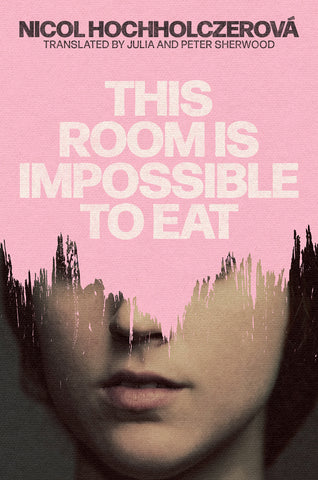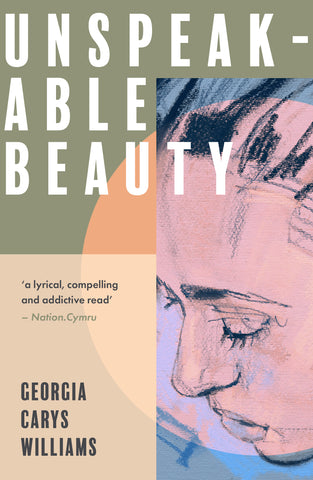Roberto Pastore published his first full collection of poetry, Hey Bert, with us in October. He was recently featured in the Western Mail's Author's Notes and here is the interview with Jenny White in full:
Tell me a bit about yourself – where you grew up, how you came to Cardiff, when you started writing poetry.
So I grew up in and around Milton Keynes, England, we moved around a lot growing up. My family comes from Italy, my father lives there now. My poem Show Homes is about my parents fondness for looking around houses. It was the era of the yuppie and I think my parents aspired to that, coming from a very poor area of Italy, they really bought into that whole deal. I wrote poems and things, like any teenager does, but It wasn’t until I left home and went to study in Carlisle that I really devoted myself to it as a practice. I moved to Wales about 14 years ago with my girlfriend at the time who was Welsh. When that relationship ended I stayed, I like it here.
Who or what has influenced or shaped your poetry?
The Beats had a profound affect on me in my teens. I liked that they treated everything with reverence; the city, the slums, dirt and industry and drugs and mountain tops and cars, everything was equal. I adored Gregory Corso especially, he used language in this really disruptive way, word combinations that would kind of startle your brain, things like ashfoot or rainlight. I’m drawn to 1970's feminist object/performance art, Yvonne Rainer, Yoko Ono, I find their use of speech and text really inspiring. Julia Heyward’s Shake, Daddy, Shake blows my mind – they showed it at Chapter Arts recently and I was obsessed with it and had to keep going back to re-watch it. Those artists had a ritualistic approach to language, lots of repetitive gestures. I’m interested in repetition and use it in my poems because I like how it nudges you to read or speak or listen to that same line in a slightly less conditioned way, it also makes any slight alteration in each line very dramatic. I’m also a fan of ASMR and grew up listening to children’s guided visualisation tapes, and I think both those things share that sense of heightened reality that I like to explore in my poems. I wanted the poem A Prefix to work almost like a meditation, to be quite insistent and keep pulling you back into the moment, again and again, but as a shared thing, I like to talk directly to the reader. John Giorno’s the master at that. Pink Light is my attempt at a guided visualisation, it turned out a bit like a new-age J.G. Ballard. My favourite poets now are all women. Sophie Robinson, Mary Ruefle, Ada Limón. I think Ariana Reines is a genius.

Tell me a bit about this collection: what inspired it? Over what period of time were the poems written?
Most of the poems were written over the last year or so. A couple of years ago I reached a point in my life where I couldn’t really function anymore, my anxiety was wild. I’d been working in retail for nearly 20 years and I was scared to leave, but I left. I am very lucky, I was able to do that and for a short time and survive, with help from my mum and whatever cleaning jobs I could find. I starting studying herbal medicine, got a job as a lollipop man, and I wrote. And the writing felt different! The poems that I wrote were coming from a different place, they felt more vivid and more genuine somehow but also more detached, like I was writing outside of myself.
Why did you divide it into throat, belly and heart?
Well, they’re energy centres, but they’re also parts of the body that our culture attaches certain qualities or expectations to. I didn’t write with them in mind, it came about as I was sequencing the collection. I don’t want to impose my ideas about what they represent to me really because I’d rather people go into the collection without preconceptions.
Tell me a bit about how this collection tackles time and memory.
I’m quite a sentimental person... I think about the past a lot. Not in any ‘wish I could go back’ kind of way, just in the way that it connects me to myself. I’m also really conscious that time isn’t as prescriptive or linear as we think, and that memory is just storytelling, it’s the story we tell ourselves. And No Generation Won is very preoccupied with time, how one small, seemingly insignificant event can send echoes out, or in some way seems to predict, or even create, the path your life will take. That’s actually an older poem, one of the few in the collection, and I think it has a more nihilistic tone because of that.
The style changes from 'throat' to 'heart' – the 'throat' and some of the 'belly' feel visionary, incantatory at times; the 'heart' poems – the later ones in particular – more grounded in the present and in day-to-day life. Would you agree? Tell me a bit about how the shift in style – did you write each poem knowing where in the collection it would sit?
Yes! I agree, and I’m glad that shift comes through. The throat section tends to focus on the past, I mean the past crops up throughout the collection but it’s much more deliberate in a poem like Past Extends. There are certain events that seem to hold meaning in our lives, sometimes they’re not especially big events, so what is it about them that keep us going over them? What do they mean? Are they just little creases in the cloth? Belly, those poems are less obviously personal, a bit more metaphysical but also there’s humour there, because the subconscious is pretty funny. The heart poems are much more down to earth, about where I’m at now. I think there’s a sense of gratitude and resolution in some of those later poems.
Were any of these poems written to be read aloud? Having taken part in the spoken word scene, has this shaped the way you write?
I think so, yes. Reading to an audience is such a strange, and let’s face it unnatural, thing to do. I think through the years I’ve become more conscious of the responsibility that it entails, of what you’re releasing out into the room. Words are powerful and you don’t know what experiences people are bringing with them to a reading... I don’t want to pile more trauma on them. I think everyone wants to see you being real, vulnerable, because that’s empowering. So while I didn’t write any of these poems with the intention of being read aloud, I think some of them definitely lend themselves to that. I just wish my voice was more like Sam Elliott.
Tell me a bit about these poems approach the experience of life/death and being/not being – what fascinates you about these themes, and what did you aim to explore in this work?
What I find most fascinating is how our thoughts on these things change as we age. In my twenties I was so stubborn, it didn’t occur to me that my conclusions were conditioned, that I hadn’t really come to them myself. How we face the idea that one day we’ll stop being us is an ongoing process. It’s good to think about, because it’s the ultimate humbling thought. I don’t know if you ever come to terms with it, and that keeps us innocent. That’s what the line at the end of Heart Poem is about, we’re not here for long, we’re children really.
There's a sense of loves and people lost – how did these poems help you explore these themes from your own life?
It’s like picking an old scar, which is painful but also weirdly satisfying. A poem like The Contents Of A Human Body, about my father, was so hard to write. I was actually scared of that poem for a while. You don’t know what’s going to come through when you sit down to write a poem like that, it’s like a ouija board. I hope the love comes through in that poem, as well as the more complicated emotions. The interesting thing is now family and friends and total strangers are reading these poems, and responding to them in ways I hadn’t thought of, so the poems keep revealing themselves.
I enjoyed the sense of the mystical – the mention of spirit animals, the sense of connection with nature, or human connection, as transcendent or defining, the sense of ghosts from the past still present – juxtaposed with very ordinary details from daily life. Tell me a bit about how these two elements work together in this collection.
I think I believe in spirit animals, who knows? I was told mine is the antelope – it’s in The Convulsion. I believe in astrology, tarot, herbal medicine, but also in Lana Del Rey, beans on toast, the internet and trashy soap operas, everything has a transformative power. I’m an introvert and a bit of a hermit, but I totally believe that we all yearn for community and communal experience. How we live our lives, what we eat, how we treat people, how we listen, how we interact with other species, this is all we have. Mysticism really just means something that’s unseen, or concealed, and personally I don’t think that I can see or touch everything there is. Dark Flow touches on that idea of visibility and the part technology plays in our sense of connection to each other, or the cultural moment. We go through the day and all these thoughts and actions come and go, we drink tea then we remember something that happened in our teens, maybe we pet a dog and think about death, we vote, we watch TV, we put a crystal in our pocket. When I write I try not to prioritise one thing over another, everything, even remembering a past event, happens in the present, and we all get to be magpies and pick what holds meaning for us.
Roberto Pastore studied in Carlisle, Cumbria, where he participated in the renowned Speakeasy spoken word scene. A chapbook of his poetry, The Dumb Supper, was released by Freerange Poetry, in 2008. Roberto lives in Cardiff, where he works as a school crossing guard.



